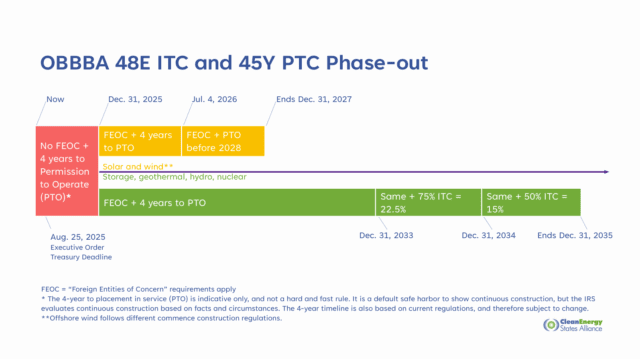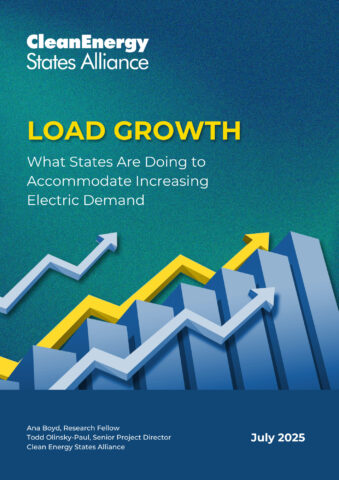Resource Library
Here you will find CESA's reports, guides, case studies, videos, and more. These resources are listed in chronological order, with the most recent first.
SEARCH RESOURCES
You can also search by author name.
RESOURCE TYPES
RESOURCE TOPICS
RESOURCE PROJECTS
RESOURCE YEARS
This diagram displays primary dates for commencing construction, foreign entities of concern, and placement in service by technology in one print out diagram to use as a quick reference.
This report surveys the causes of electricity load growth and outlines what the states are doing to meet the challenge.
This report compiles research on best practices for designing solar programs that provide meaningful benefits to low-and-moderate income households. The report examines different types of solar projects, including residential-serving community solar, rooftop solar, and installations serving multifamily affordable housing. It includes six case studies and information about savings verification.
This directory lists and describes federal and state resources for educating consumers about solar opportunities and considerations.
This issue brief, released by Clean Energy Group and CESA, outlines best practices and lessons learned for state policymakers and regulators engaged in developing energy storage peak demand reduction programs. The brief explores key elements of program design, such as incentive mechanisms and dispatch methods, as well as considerations for incentivizing load reduction versus power export, and peak demand reduction versus emission reduction.
This report from CESA and Sandia National Labs compiles the results of independent research, providing a summary of emerging affordability and accessibility approaches in leading state energy storage programs. It is intended as a reference material that can be used in state energy storage policymaking across diverse geographical and regulatory jurisdictions.
This CESA presentation within the Meaningful Household Savings Community of Practice summarizes best practices, pathways to scale meaningful household savings, and research needs.
This paper presents recommendations to help state energy agencies design and implement equitable stakeholder engagement strategies for their solar programs.
This case study explores the Tribal-State relationship through the experiences of the Leech Lake Band of Ojibwe, which shares geography with Minnesota. Over the past decade, the Band has built relationships with state agencies in support of renewable energy and sustainability programs.
This document seeks to help state government officials create and/or expand their processes for equitably engaging with communities when developing and deploying solar programs.










